On Friday, April 25, the La Salle theater program debuted “Anastasia,” its two and a half-hour spring musical production following Anya, an amnesiac Russian girl who has no recollection of her upbringing as the Princess Anastasia after nearly all of her family was killed in the Russian Revolution.
“Anastasia” centers around Anya’s journey to find her grandmother, the dowager Empress of Russia accompanied by her financially-motivated friends Dmitry and Vlad.
Students explained that many members of the La Salle theater community were excited for the opportunity to put on this production, which was originally a 1997 movie before being adapted onto the Broadway stage in 2016. Junior Leah Simon, who plays the swing of the titular Anastasia — known for most of the play as “Anya” — and her mother in the main cast, was one of them.
“She’s just a normal girl, but she is [also] a princess,” she said. “That’s a really cool thing, because the one doesn’t have to be without the other.”
But, as its performers explained, “Anastasia” isn’t like many La Salle productions in recent memory.
One big reason for this is the reintroduction of swing casts, or multiple actors playing as the same character on different days, a technique last used during “Mamma Mia” in 2022.
“It’s a foreign concept to everyone except three, four people,” senior Sayre Albert said. Albert, who primarily plays Dmitry but acts as Vlad on swing nights, explained that his two prominent roles led to many challenges during rehearsals.
Because Albert gets so into character, it can be difficult to switch between roles.
“The biggest challenge for me was tech week. That was probably my least favorite week just because we would do a scene, stop, and then do the same scene, but with swings,” Albert said. “Since I had two big roles, just the brain-switching was really tough on me.”
It’s a similar story for Simon, who plays Anastasia during swing performances and her mother, the Tsaritsa, during main ones.
“Learning one part is hard enough. Learning two parts is even harder,” she said. “You’re learning how to play two different characters. And for each character … you’re gonna have different choreography, you’re gonna have different music lines and cues. You’re gonna have pretty much a different thing for every single scene to memorize.”
Unfortunately, in realizing the vision of “Anastasia” over a staggering nine shows, everyone has to deal with the challenges that accompany every theater production along with the added novelty of swing days.
Singing in front of a crowd is a very challenging thing for most people, students explained, and acting in Anastasia requires a lot of that.
Freshman Akil Pinney, who plays in the ensemble and is the swing actor for Dmitry, said that this was his first experience singing in front of people, and for him, it was the most difficult part of the whole production. During “Lost Girl” and the one-act productions which took place in the winter, Pinney couldn’t have imagined performing in a musical.
When auditions for “Anastasia” began, though, he began to reconsider.
“When the audition form for ‘Anastasia’ came out, I was like, ‘would I want to get that, to try and get that role?’” Pinney said. “I was like, ‘I gotta be dedicated to get this.’”
Throughout rehearsals, having to sing when acting in both the ensemble and as a lead has caused him to grow, not only artistically and technique-wise but personally as well.
“I have really gained confidence, a lot more confidence in my singing, because I doubt myself a lot when I sing. I just really don’t think it sounds good,” Pinney said. “But I think I’ve broken a little past the doubt of myself sounding bad.”
Like Pinney, Albert has also gained a deeper love for singing during his work on “Anastasia” and has become more confident in his vocal abilities. According to Albert, before getting to the performance, he pushed through a lot of self-doubt, especially after losing his voice a week before opening, and came out a lot more confident. Despite originally just singing for theater, he expects to keep singing in his life after high school.
Junior Tabitha Obuchowski, who plays Anya, has been singing her entire life, and began taking vocal lessons early in her high school career. According to Obuchowski, she uses a variety of different vocal warmups and techniques to get her voice ready before performances.
For Obuchowski, a lot of singing is mental, but there are ways to overcome these internal roadblocks.
“If you focus on technique, then some notes that are scarier can become less scary,” she said. “It’s a lot about breathing, and it’s a lot about not being afraid of the notes, because if you think you’re gonna do it, honestly, more often than not, you will.”
In “Anastasia,” in the middle of Act Two, the main characters attend a ballet performance, and for a few minutes, there is no singing at all as everyone — both actors and audience — watches three dancers in the center of the stage. One of the three people in this performance is senior Kira Caldwell, who has been doing ballet since she was only three years old.
After around three one-hour-long practice sessions, Caldwell explained that she was able to understand and execute the choreography for this scene.
“I had a couple, only a couple of practices actually, where I learned choreography by myself first, and then I got to meet with the other two ballerinas, Claire and Rowan, and we did a couple run-throughs,” Caldwell said. “So we really didn’t have that much practice, but even with only meeting a couple times, I feel like it doesn’t look horrible. It’s pretty good; it came together pretty well.”
When they were preparing for rehearsals to begin, members of the cast and crew assumed that the technical aspects of the show weren’t going to be unlike those of previous productions, Mr. Shelton explained.
However, “as we’ve been going through this process, we’ve been coming to realize that the show itself is [deeply] layered in nuance with the technical aspects,” Mr. Shelton said.
These challenges took many forms, whether the extremely short costume changes — in a show featuring a total of some 168 costumes — repeated and intensive set changes, or any other of the myriad difficulties that come with a princess-epic of this scale.
The stage managers, junior Kat Marks and senior Phoebe Sandholm, are in charge of wrangling this chaotic production on a moment to moment basis. They have had to learn the extensive timetables that come with dozens of entrances and exits, scene changes, costume changes, and the complexity of a production of this scale.
“We’ve got scene changes that have required seven, eight running crew members every three pages, we have so many props,” Marks said. “This is the most technical production we have ever done at my time in the theater.”
Freshman Patrick McGowan said as a sound designer, he is aiming to do his part to help the production succeed, mainly working with actors’ mics under the guidance of professional sound designer Austin Klein. The only major challenge he has encountered so far is that the microphones often break, meaning that he has to adapt and work with other sound crew members to ensure actors are still heard on stage.
“How our microphones work is that you have a mic pack and then you have a separate wire with a microphone,” McGowen said. “There’s an attachment on the end of the wire that clips into the mic pack, and a lot of those have frayed and just either stopped working entirely or made it sound really grainy.”
But even after every challenge, and a lot of long nights after leading up to the performance’s opening night on Friday, April 25, the cast and crew think the show was worth the effort.
“When you put so much effort into a show, it reflects on stage,” Simon said. “Even if people don’t know the little niche details of what we do. I think that when you put so much time and love into something that it’s obvious and evident to other people when they watch it.”
And since opening night, “things have gone incredibly well,” Sandholm said. “I know actors have been stressed, but they’ve still put on really good shows.”
“Come see your friends. Come be a part of seeing Falcons do other amazing work,” Marks said. “Everybody, even if you’re not a theater person, I think that this is the type of show that you can take something from and really appreciate.”
Correction: May 2, 2025
A previous version of this article incorrectly stated ‘Anastasia’ was originally released as a Disney movie.



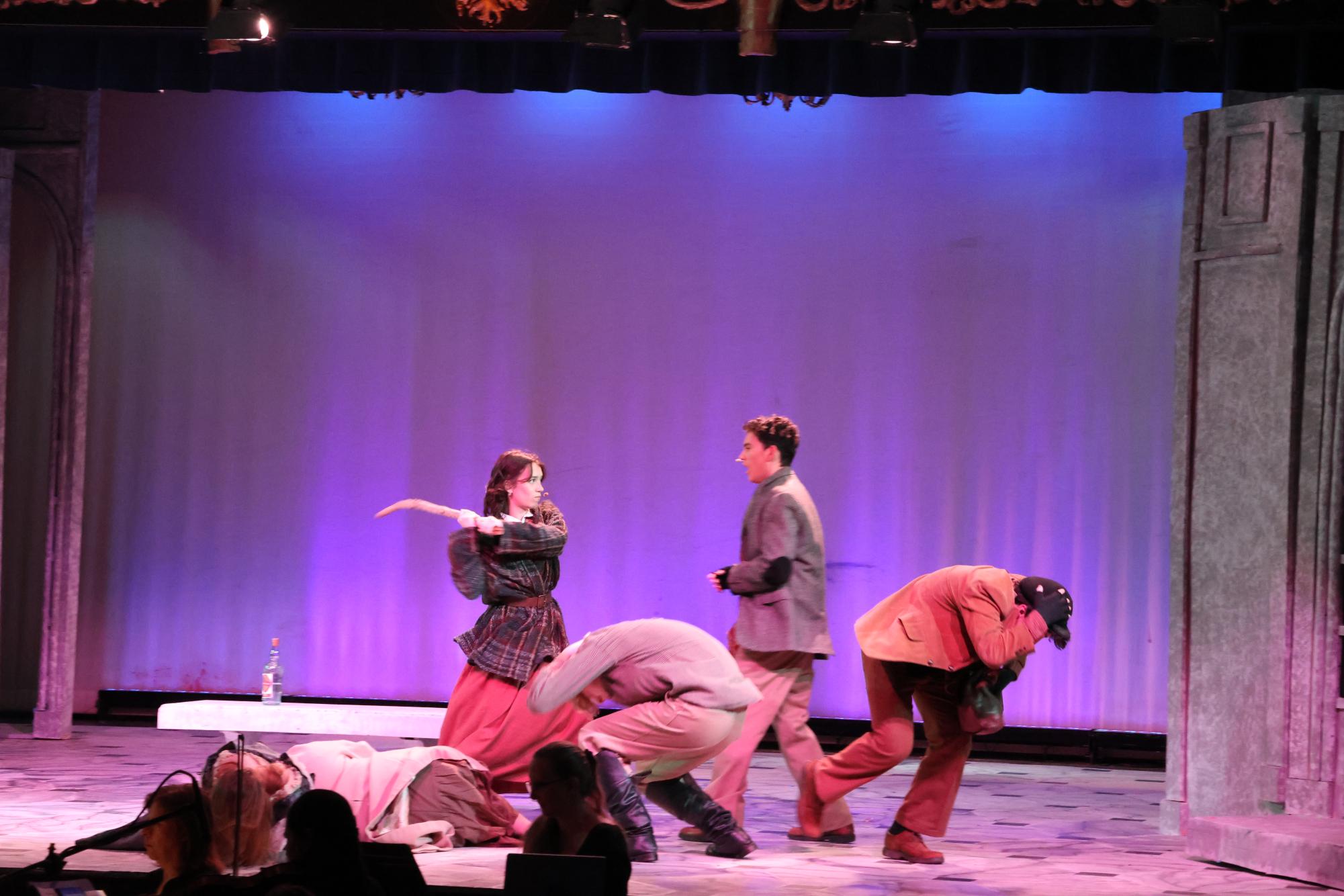
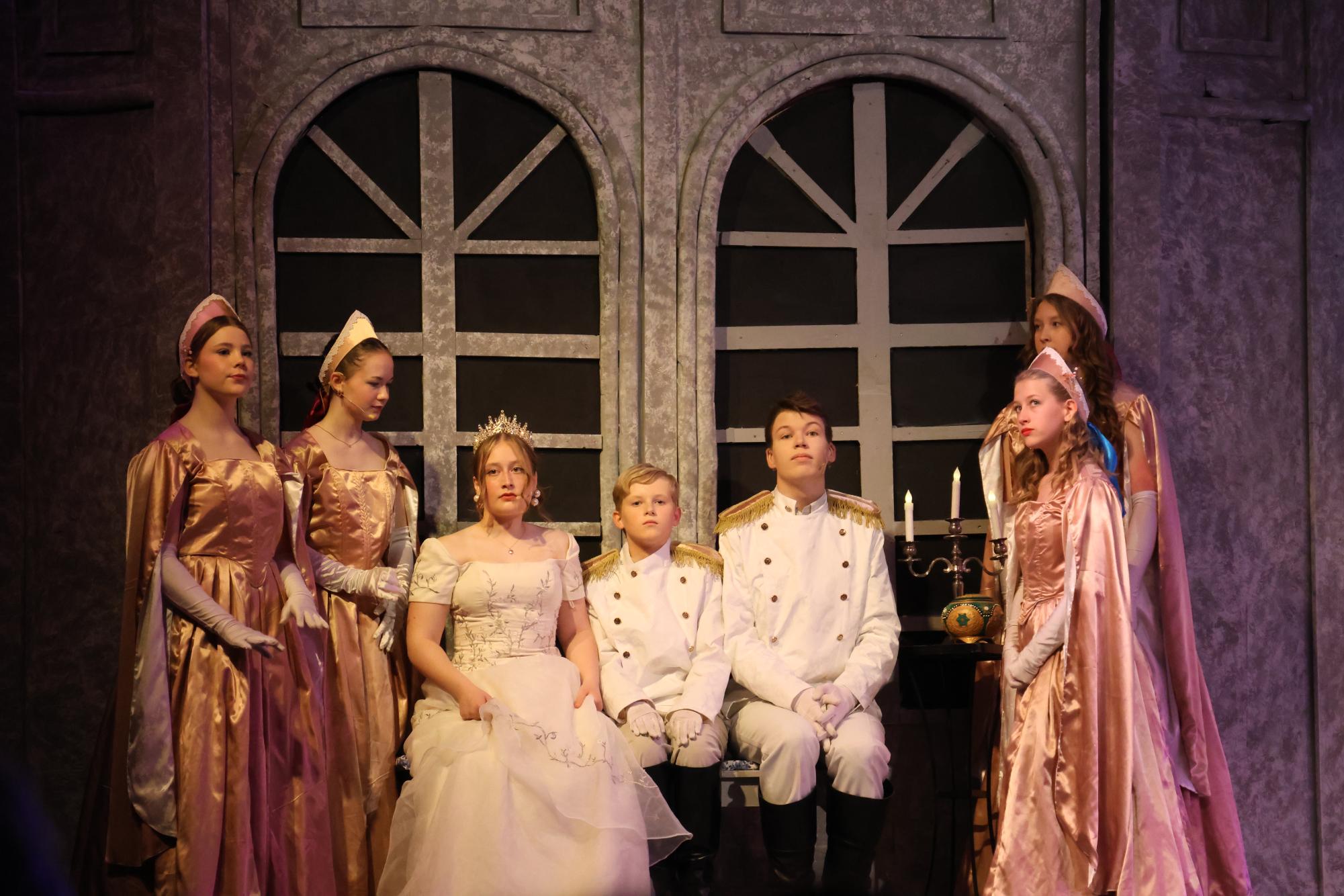
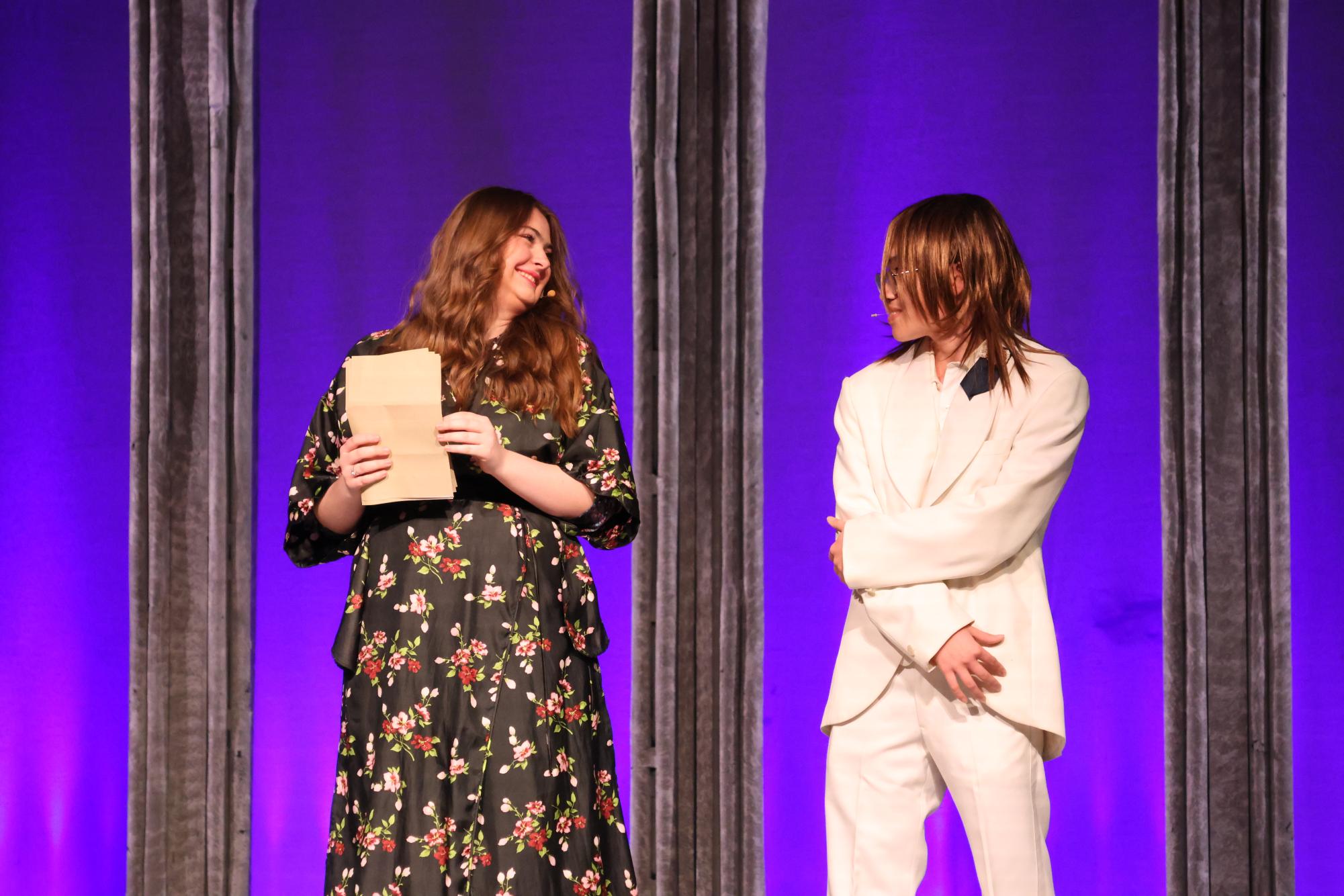
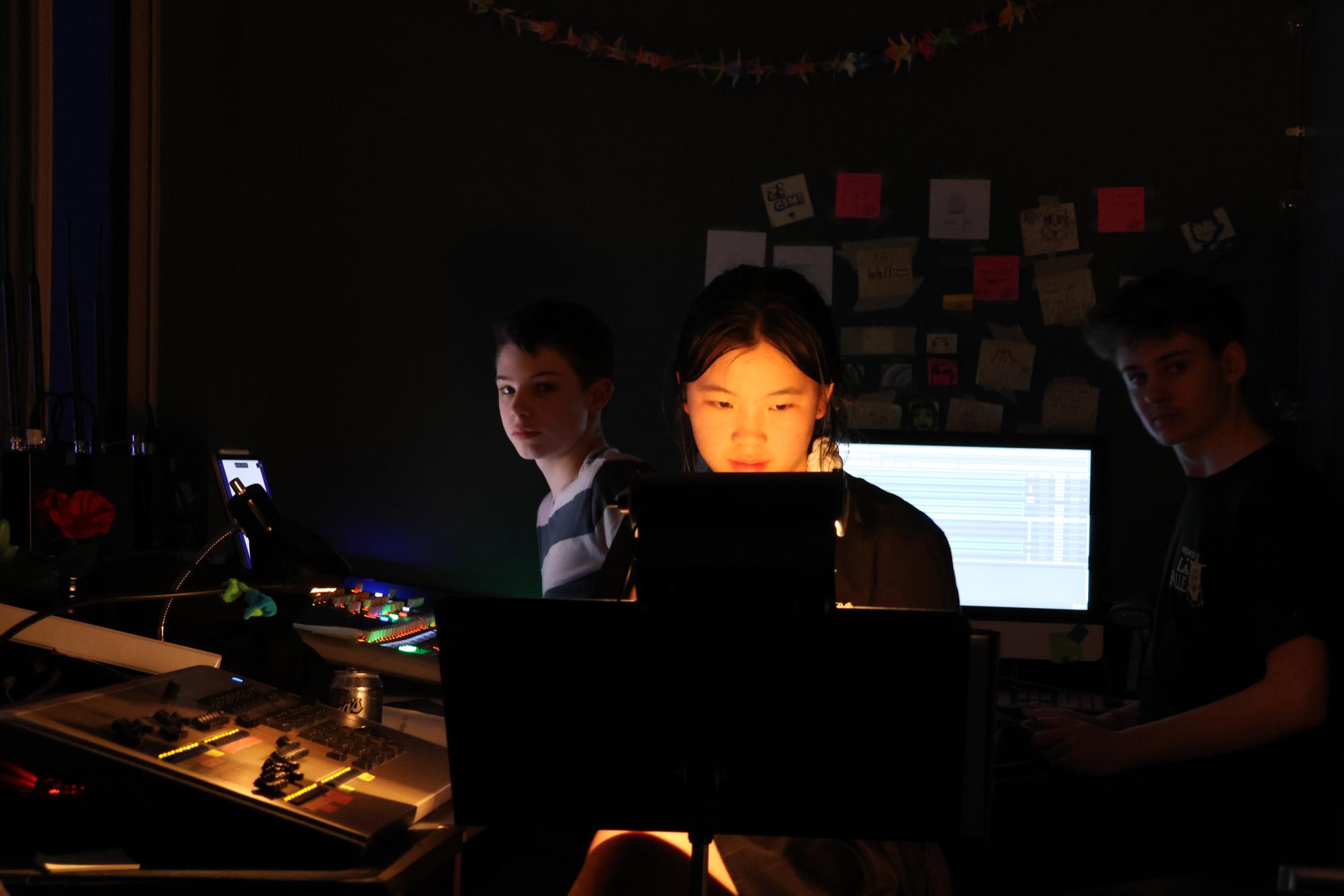
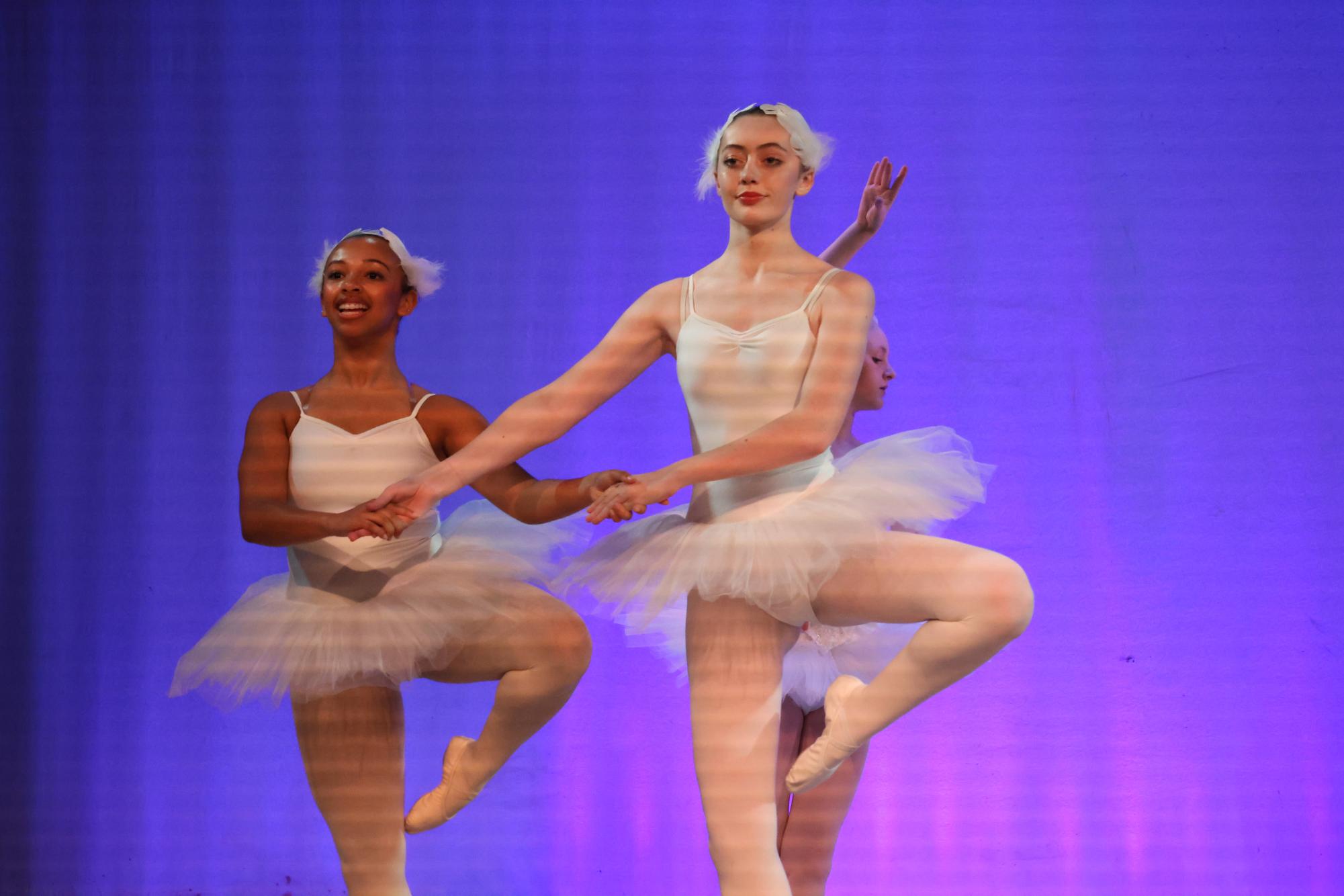
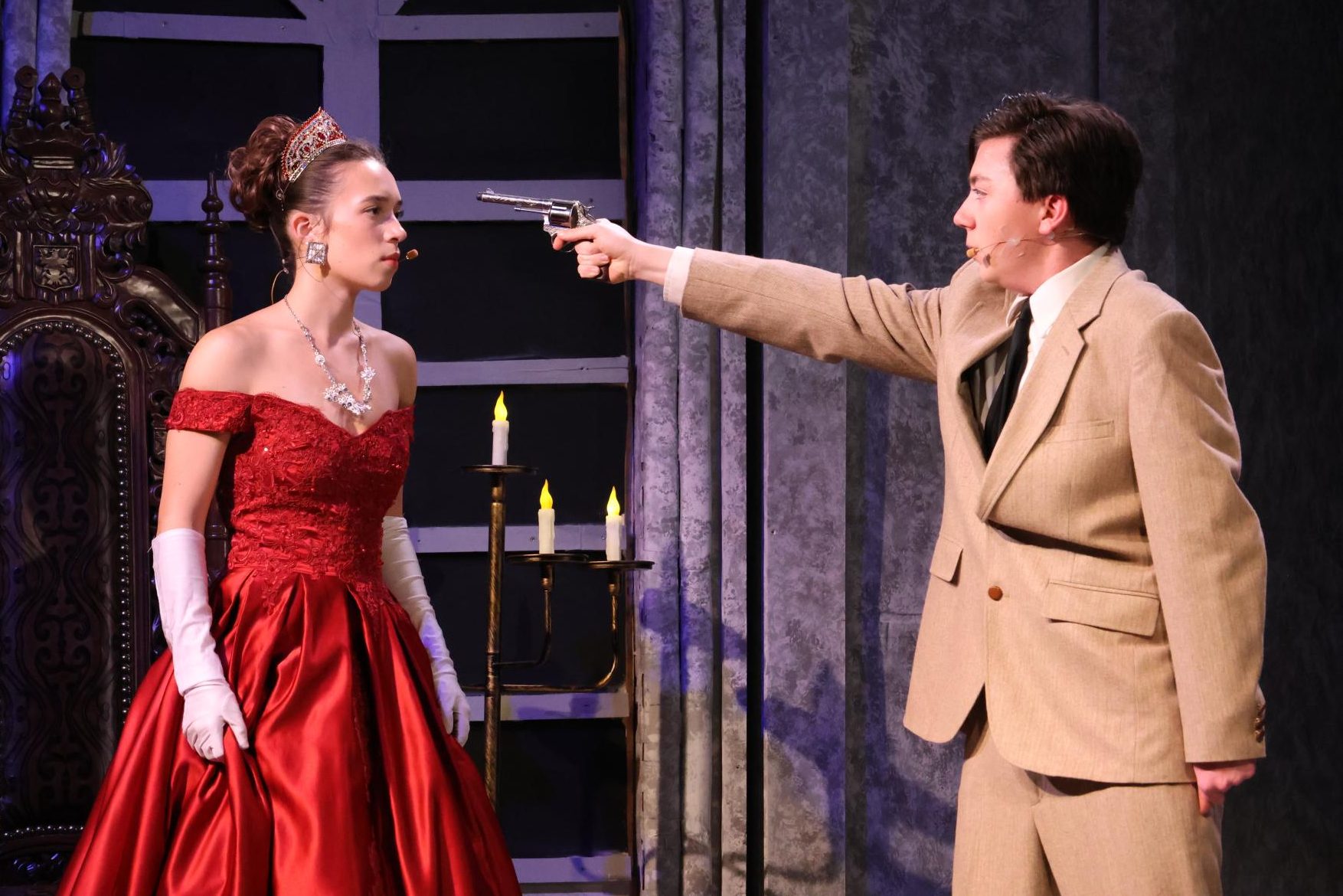
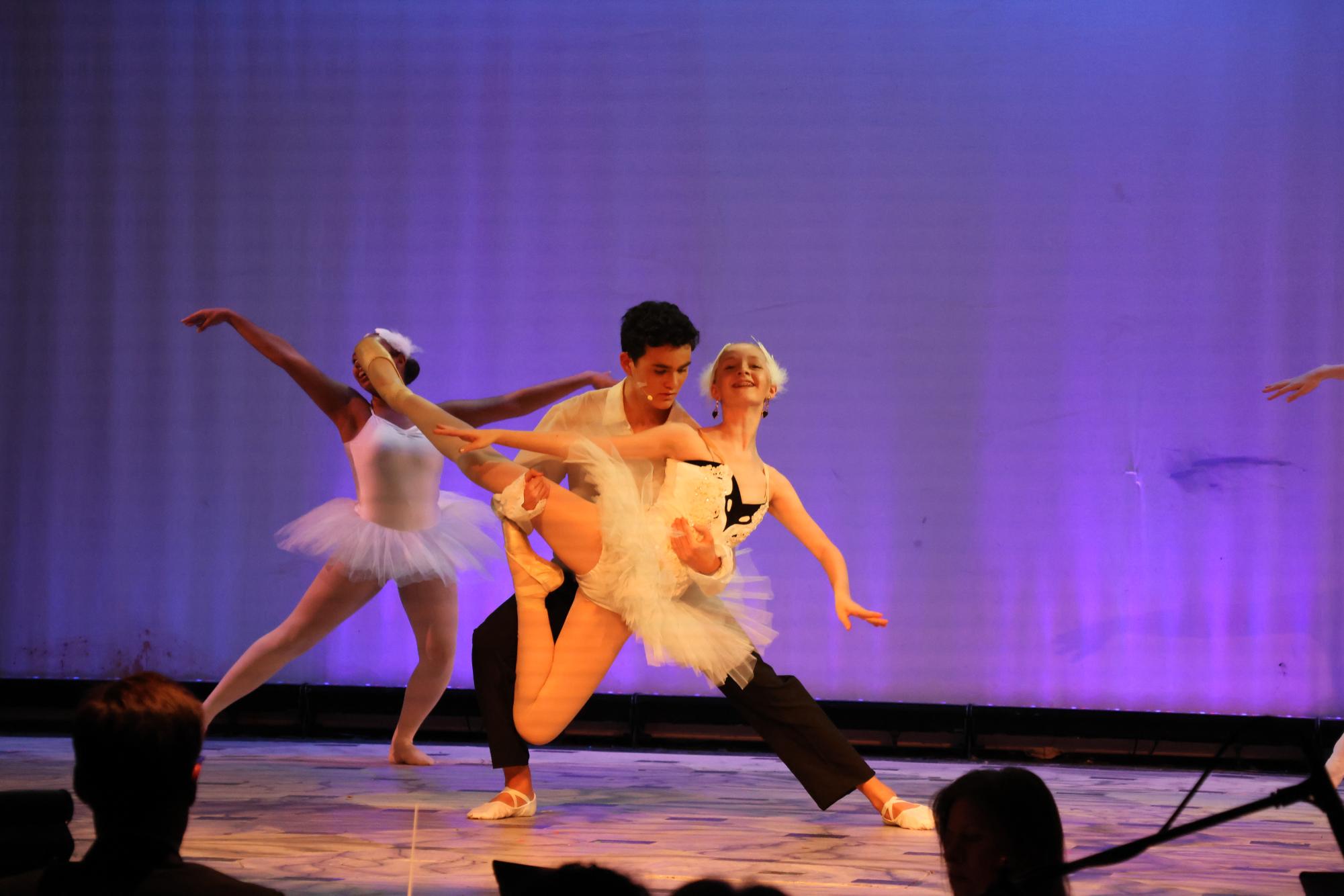
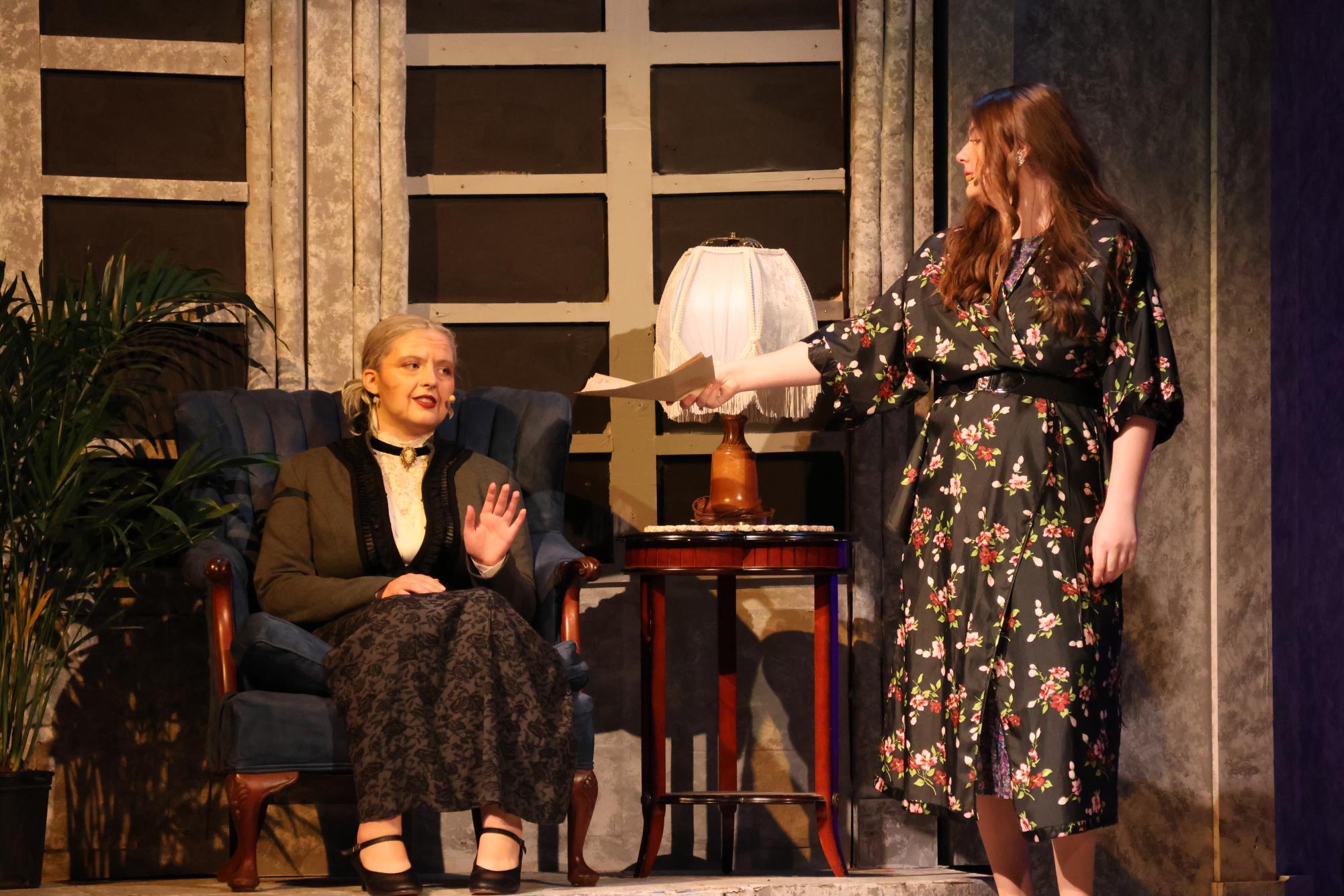
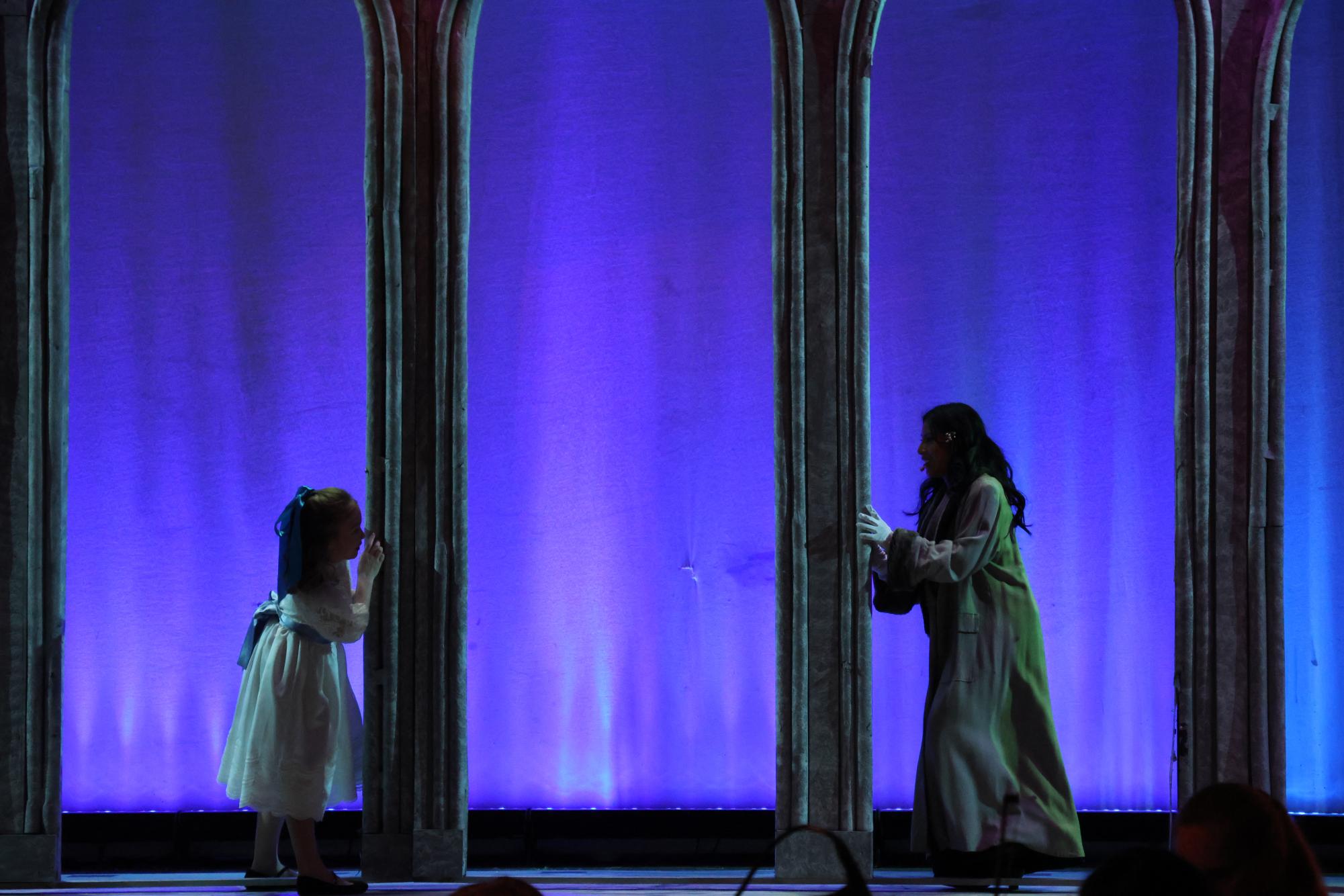
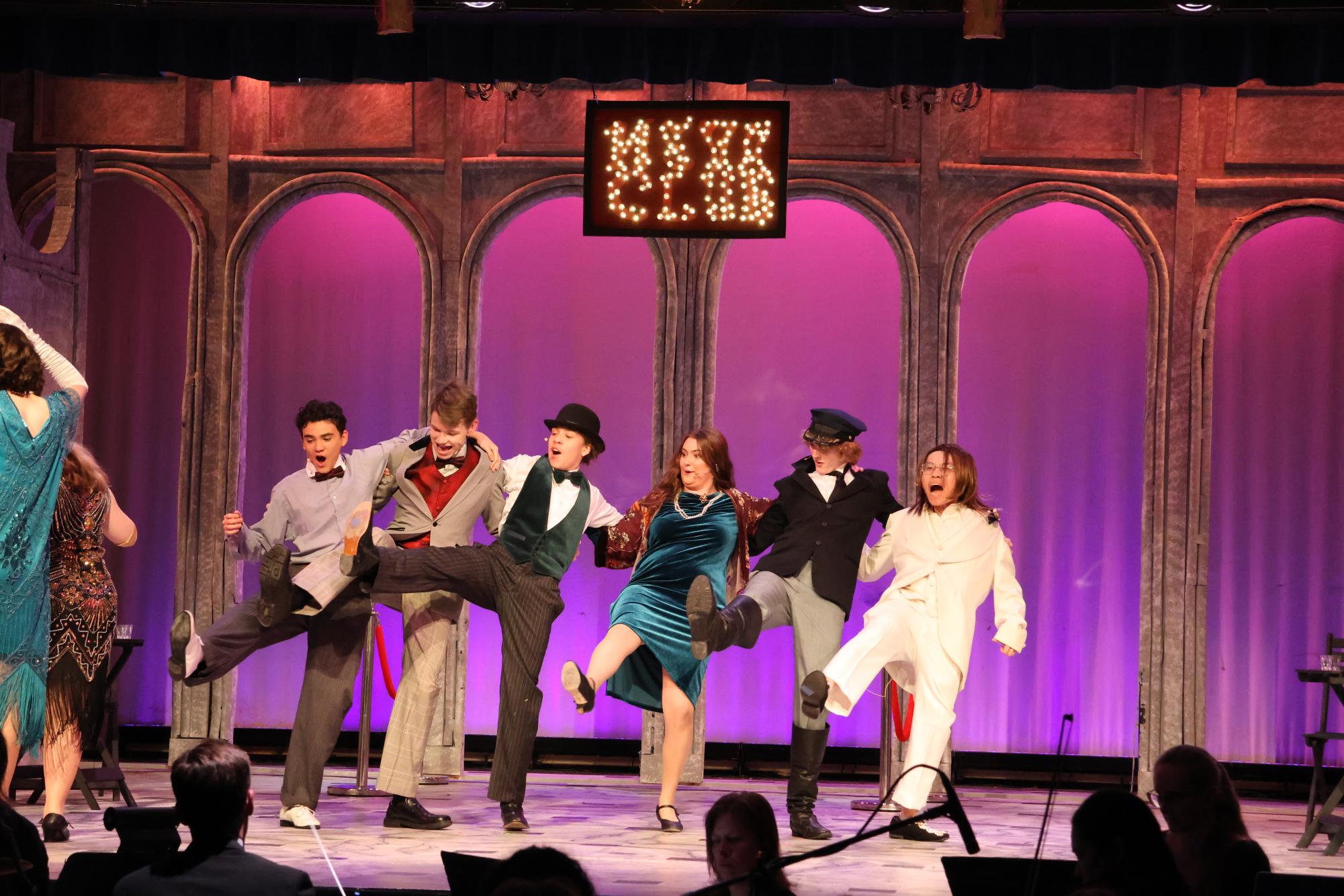
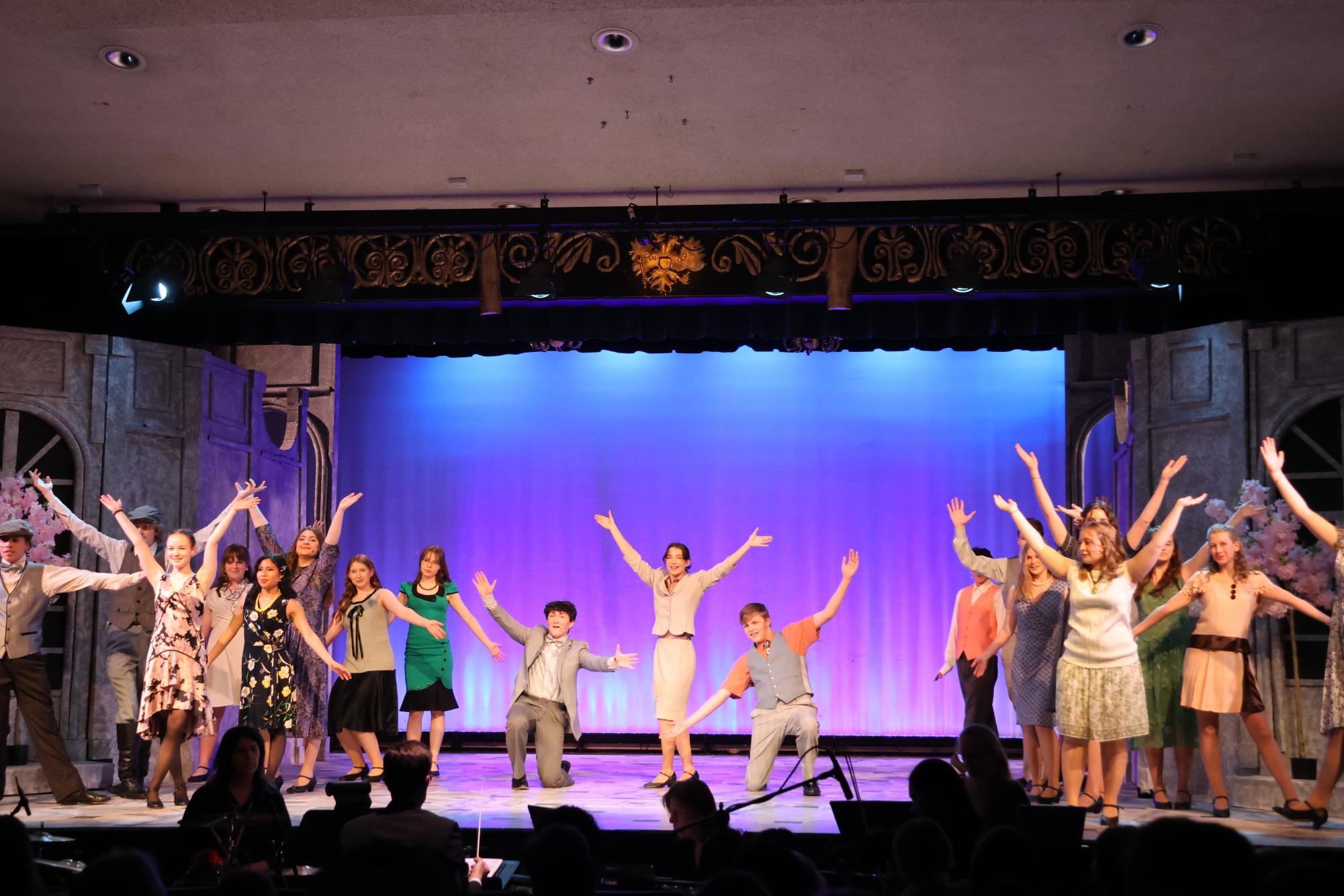
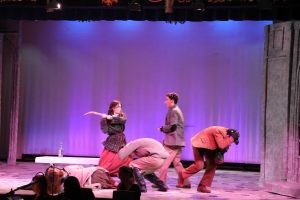
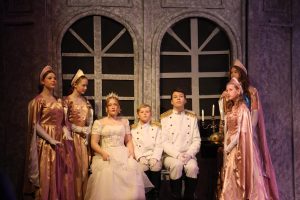
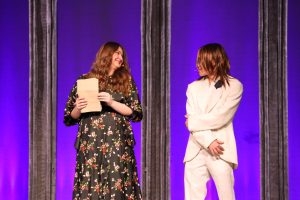
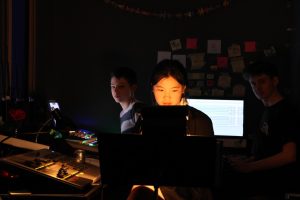
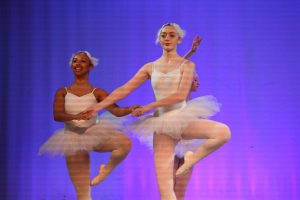
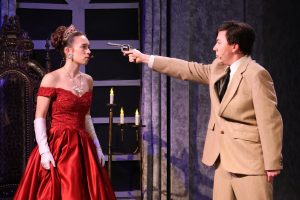
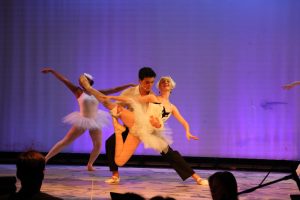
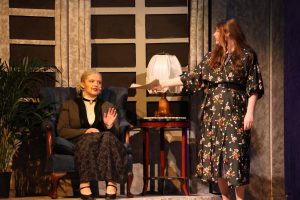
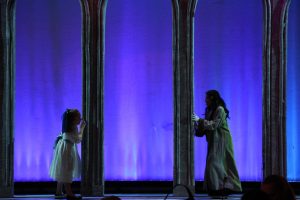
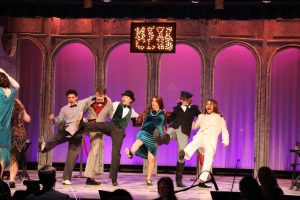
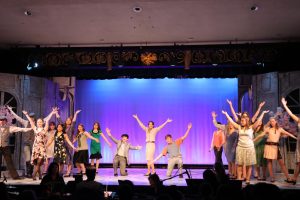
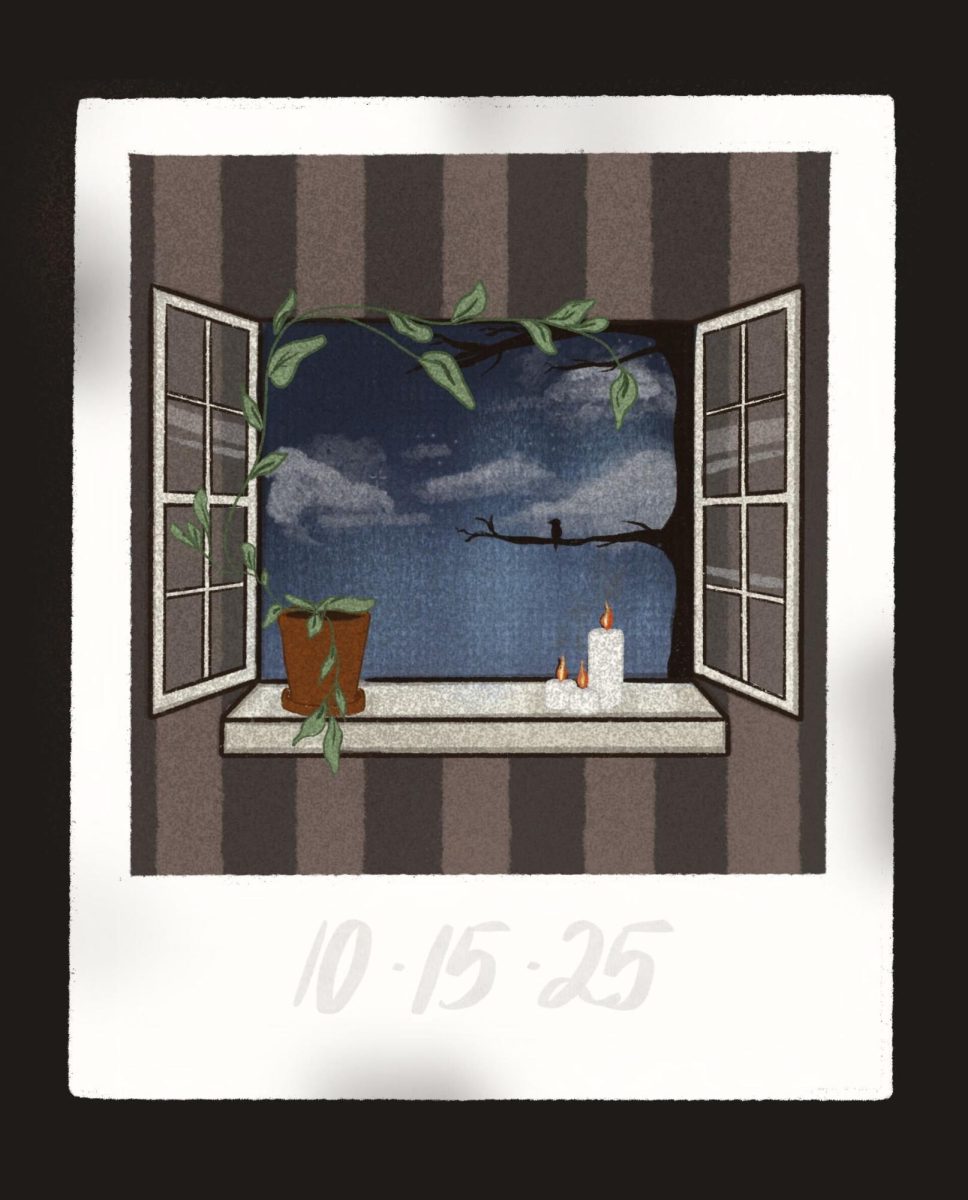


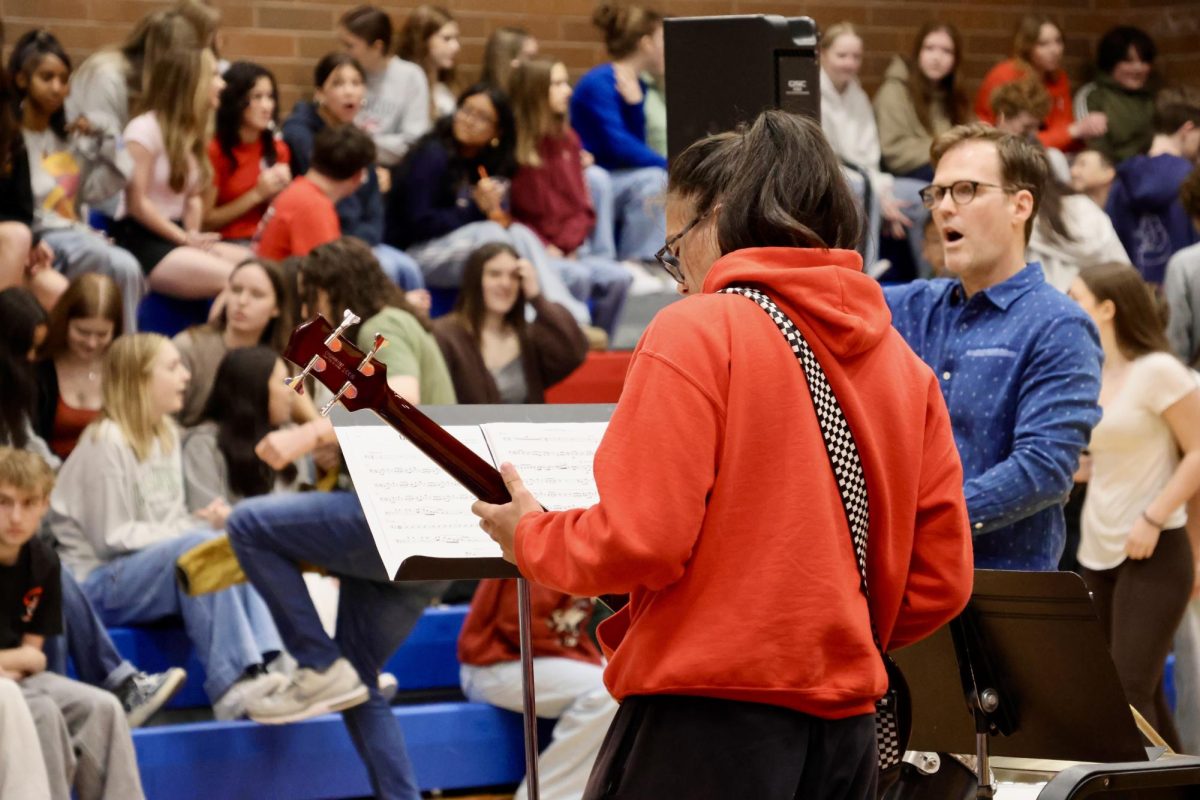


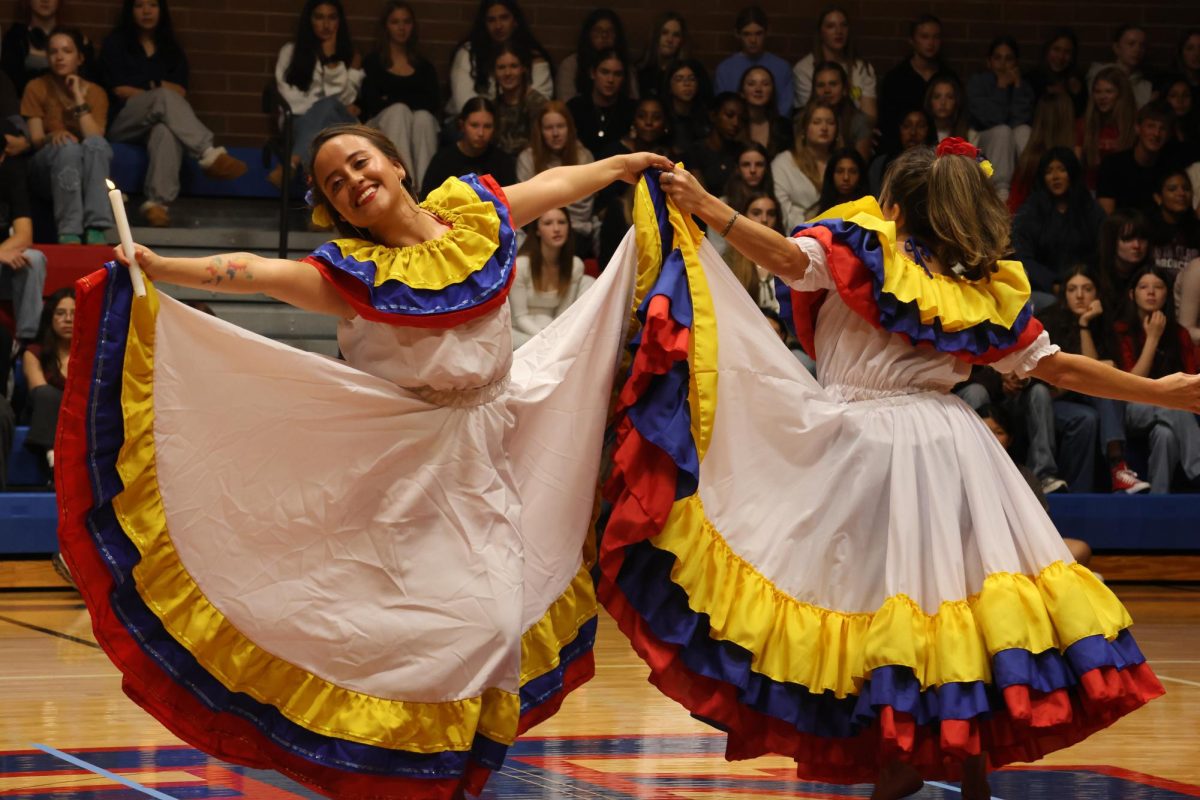
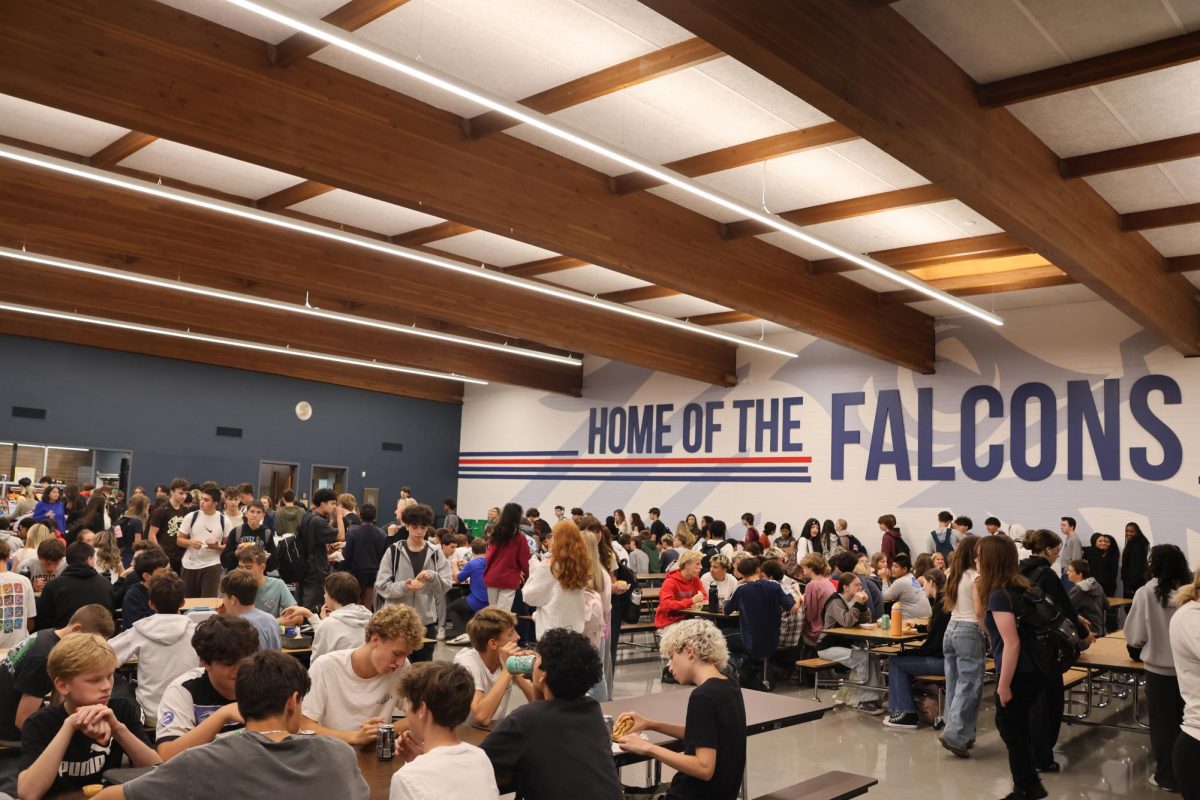


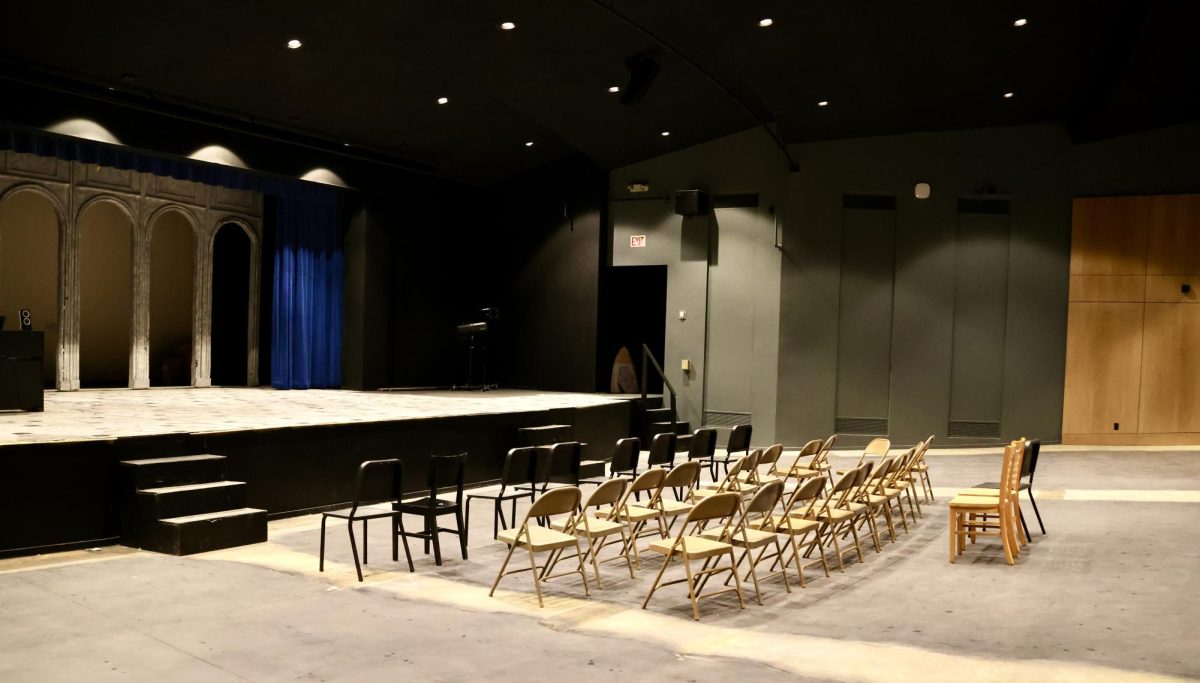
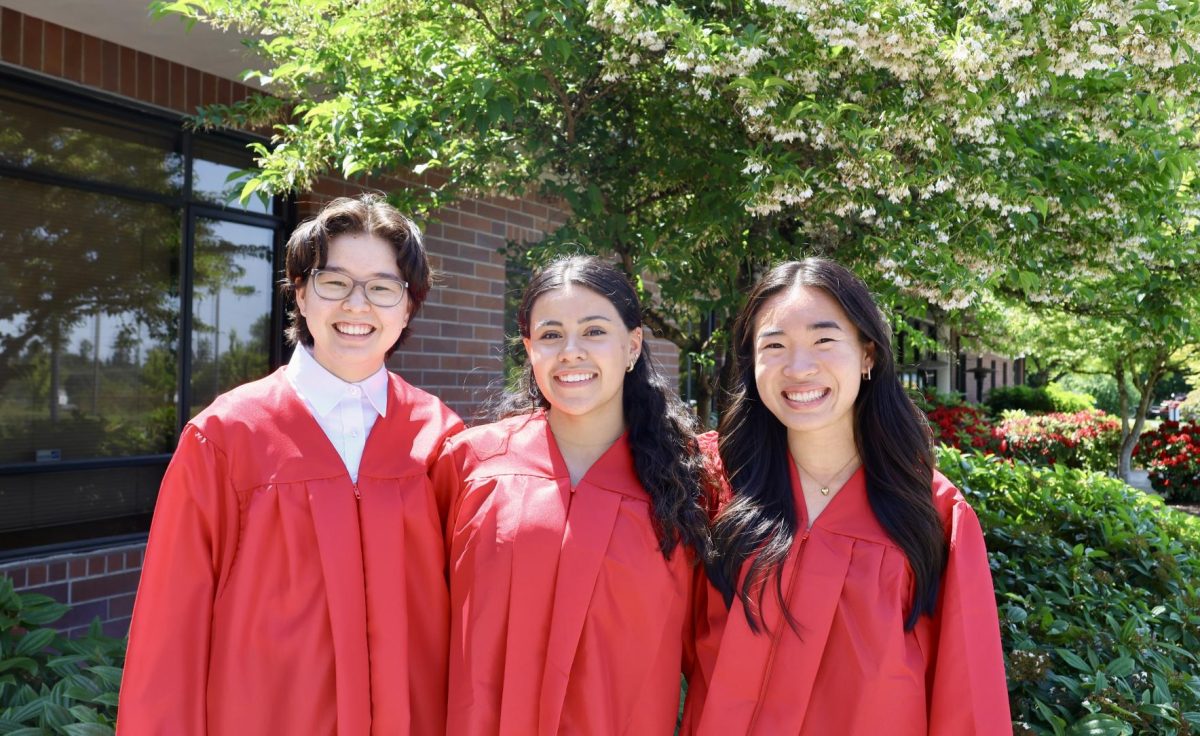
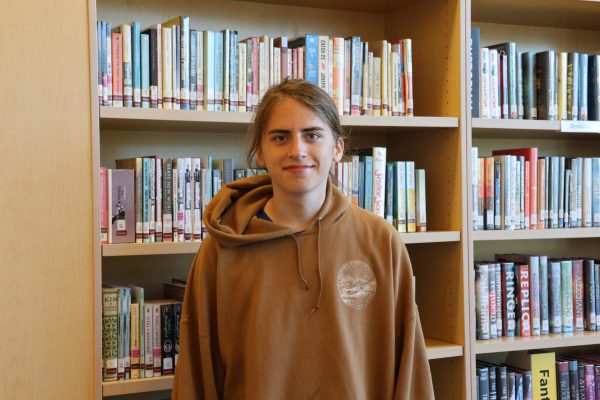
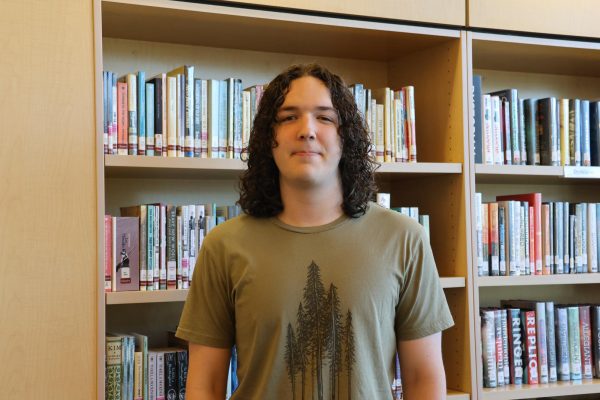
Chris Timberlake • May 7, 2025 at 5:53 am
Absolutely gorgeous show. I cannot say enough about the talent here both on stage and off. Bravo! – CT
Jonni Lewis • May 1, 2025 at 8:57 am
Well written article! Well-executed play! It was so easy to get 100% immersed in the play that it evoked emotions ranging from tears to laughter!
Thank you for the thorough reporting on the ‘behind the scenes’ of the production! Kudos to the orchestra, as well! The conductor and musicians added a great element to the play!